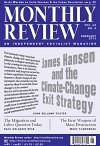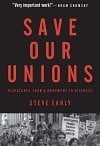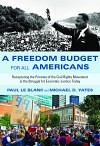United States
Marge Piercy is the author of eighteen poetry books, most recently The Hunger Moon: New & Selected Poems, 1980–2010 from Knopf. Her most recent novel is Sex Wars (Harper Perennial) and PM Press has republished Vida and Dance the Eagle to Sleep with new introductions. | more…
When I was a lad, I wrote amorous ditties, To Judy, Aleine, Edelina, and Sue. But now that I’m gray, I’ve abandoned those pretties, I’m singing my songs to the MONTHLY REVIEW.… So sang E.Y. “Yip” Harburg, to the tune of “The Streets of Laredo,” at Monthly Review’s fifteenth anniversary party. Accompanying him on piano was my late wife, the Judy to whom Yip wrote ditties. You will not find her or Aleine Mufson mentioned in the pages of this biography. Nor will you find cited any who, because they rubbed elbows or other body parts with Harburg, could lead the reader to the fullest possible understanding of who he was. | more…
Review of Agustín Fuentes, Race, Monogamy, and Other Lies They Told You: Busting Myths About Human Nature (Berkeley: University of California Press, 2012), 274 pages, $27.50, hardback.
Review of David Gilbert, Love and Struggle: My Life in SDS, the Weather Underground, and Beyond (Oakland: PM Press, 2012), 352 pages, $22, paperback.

For a long time now orthodox economics has been hindered by its extreme irrealism—a refusal even to attempt a realistic theoretical understanding of how modern capitalism functions. The shift to using fanciful assumptions to explore largely minor issues, following a brief Keynesian moment in the post-Second World War era, has been in many ways self-reinforcing. Once fundamental characteristics of the capitalist economy such as labor exploitation, accumulation, built-in inequality, monopoly power, rent-seeking behavior, technological change, and the tendency to stagnation were removed from the analysis—as a result of an ideological process of system-rationalization—there was little recourse but to fall back in successive stages on more and more abstract models based on increasingly purified notions of individual rationality.… Nevertheless, the deepening crisis of today’s monopoly-finance capital has given rise to a new era of questioning within the economics profession, and some top-tier neoclassical economists are now struggling—though hindered at every step by their own training and inclinations—to recapture knowledge long abandoned. | more…
The world at present is fast approaching a climate cliff. Science tells us that an increase in global average temperature of 2°C (3.6° F) constitutes the planetary tipping point with respect to climate change, leading to irreversible changes beyond human control. A 2°C rise is sufficient to melt a significant portion of the world’s ice due to feedbacks that will hasten the melting. It will thus set the course to an ice-free world. Sea level will rise. Numerous islands will be threatened along with coastal regions throughout the globe. Extreme weather events (droughts, storms, floods) will be far more common. The paleoclimatic record shows that an increase in global average temperature of several degrees means that 50 percent or more of all species—plants and animals—will be driven to extinction. Global food crops will be negatively affected. | more…
When the real estate market was building momentum during the 2000s, [new types of restructured, risk-based financial instruments] looked like a free lunch and insurers could pocket the insurance premium without ever being called in to make up for losses. However, when the market reversed in 2006, the payday came: some insurers lost heavily, others went bust, and a few, such as AIG, were bailed out. … By the end of the cycle, we had learned about the pro-cyclical nature of ratings-based structured products and the dangers of the new food chain. Hedge fund manager George Soros called Credit Default Swaps “weapons of mass destruction.” We had, many believed, been defeated by novelty. Or had we? Many think that subprime products are new, and that the use of ratings to structure financial instruments and so-called Credit Default Swaps (CDS) are a recent invention permitted by advances in modern finance. They ought to study the history of Levy Maybaum, a man who lived in New Jersey in the late nineteenth century and invented the first CDS. | more…
In a little more than two months at this writing (December 3, 2011) the Occupy Wall Street movement has ushered in a new dialectic of world revolt. Occupy movements now exist in more than 2,600 cities across the globe. The response of the system has been increased repression. Yet, everywhere the movement has come up with new means of revolt. Had we tried in early October to predict how things would be at the start of November we would never have succeeded. Likewise we cannot predict now at the start of December how things will look even at the start of January. And it is precisely this quality of emergence, i.e. of not being predictable from the current state of affairs, which suggests that we are at a turning point. This global rip in the cloth of imperial capital’s supposed inevitability is irreversible; that we are fully ready to predict. Looking back it will be clear that as of late 2011, we are much closer to the start of a great global revolt against the plutocracy, the “one percent,” than to its end. | more…

Save Our Unions: Dispatches From A Movement in Distress brings together recent essays and reporting by labor journalist Steve Early. The author illuminates the challenges facing U.S. workers, whether they’re trying to democratize their union, win a strike, defend past contract gains, or bargain with management for the first time. | more…

Paul Le Blanc and Michael D. Yates explain the origins of the Freedom Budget, how it sought to achieve “freedom from want” for all people, and how it might be reimagined for our current moment. Combining historical perspective with clear-sighted economic proposals, the authors make a concrete case for reviving the spirit of the Civil Rights Movement and building the society of economic security and democratic control envisioned by the movement’s leaders—a struggle that continues to this day. | more…
As a rule, crime and social protest rise in periods of economic crisis in capitalist society. During times of economic and social instability, the well-to-do become increasingly fearful of the general population, more disposed to adopt harsh measures to safeguard their positions at the apex of the social pyramid. The slowdown in the economic growth rate of U.S. capitalism beginning in the late 1960s and early 1970s—converging with the emergence of radical social protest around the same period—was accompanied by a rapid rise in public safety spending as a share of civilian government expenditures. So significant was this shift that we can speak of a crowding out of welfare state spending (health, education, social services) by penal state spending (law enforcement, courts, and prisons) in the United States during the last third of a century. | more…
As we write these notes in late January 2009 the economic depression is worsening with each passing day, creating previously unthinkable conditions. Even as production sinks and unemployment soars in the “real economy,” the implosion of the financial sector remains at the center of the crisis. It is now widely acknowledged in financial and policy circles that nationalization of the U.S. banking system, under one or another description, is inevitable. The Obama administration still resists what is referred to as a “complete nationalization,” with the government wiping out the bank shareholders and taking over the running of the banks. But every other option on the table involves further steps in this direction. Already the U.S. Treasury has received shares and other securities from 314 financial institutions in return for $350 billion in government bailout money. | more…


